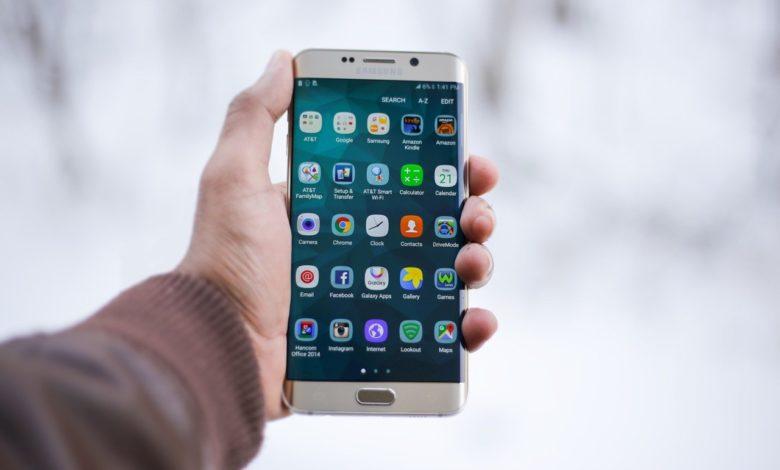Your 8 Secrets: Your Smartphone Knows More About You Than You Think

Smartphones collect information about users anytime, anywhere. However, what types of information does your smartphone gives out?
You don’t even know what kind of personal information your smartphone stores. Here you will learn about several types of data that your favorite gadget knows about you.
It is worth noting that each operating system (Android, iOS) has its services, including maps, browser, mail, and app store. You will not be able to use your phone generally if you do not use these applications.
When you activate a specific application, you permit the developers to process your data, that is, to store the data and use it for analytics.
In addition, by connecting a SIM card to your phone, you give the mobile operator permission to process the information that is included in the agreement with this operator and also allows him to accumulate even more personal information about you.
It knows about every place you’ve been
All smartphones can track geolocation. Even if you turn off geolocation on your smartphone, some applications may turn it on automatically.
Imagine turning off geolocation and access to photos; your data on your phone can still be accessed. Your location can be found by the Wi-Fi point to which your smartphone is connected, as well as by the base station of your operator.
Of course, you have the right not to give access to geolocation, photos, and a microphone, but as soon as you enter any application, such as Instagram, you just have to access them.
Everything you said to Google
Apple, Google, etc., collect data from your device to “understand you better and define what you are saying. ” All these works following the software license agreement. This means that you must first click the “Agree” button before using the function, and as practice shows, almost everyone agrees.
Search engines can track anything from how you pronounce words to your preference for anything.
Your smartphone transfers data to big players
The concise history of smartphones already has several scandals associated with the use of personal information of users by manufacturers of gadgets, including their passwords.
The companies themselves justified themselves, saying that all the data was used only to improve the usability of their phones. However, everyone understands that, to some extent, this is an invasion of privacy.
Many users do not know exactly what information technology giants store about them and how they use it.
Wiretapping
Everyone knows commands like “Ok Google,” “Listen to Jane,” or “Hello Joe.” Experts call these triggers. Some applications can have thousands of such triggers. For example, if you are talking to someone about shopping, the trigger might be the word “may.”
When using the smartphone, home users have noticed an advertisement of goods or services which they have not searched the Internet but have discussed with friends or relatives. Of course, companies don’t recognize that wiretapping is taking place.
Your passwords
Indeed when you entered the site or application, you saw a window in which you were asked to save your password, and most likely, you clicked “Yes.”
Agree; it is very convenient to go to different sites without the need to log in constantly. But think about whether you want your smartphone, as well as Google or Facebook (and other social networks), to store personal data
Every message that you send
Even if you delete your messages, they are still stored for some time on the companies’ servers, but the duration of this “some time” is unknown. Companies don’t talk about it, it may be 5 minutes, or it may be several years.
All data you provide to Google and Apple
There are many applications from Google and Apple on smartphones. As soon as you register on your smartphone, it connects to the required accounts. Thus, you give these companies access to a large amount of personal information, including the duration of phone calls, geolocation, and much more. All of this data is stored both by the tech giant and on your smartphone.
The speed of your movement
With the help of geolocation, Apple or Google can see where you are at a given time and calculate the speed of your movement and even understand how long it will take you to get to your destination.
This service can be disabled in the settings. In addition, you need to make sure that geolocation is disabled in some applications.
All the data that you provide to all applications on your phone
Chances are, you already use apps that track your data. But, when installing an application, do you pay attention to what “agree”? If you read the agreements carefully, it will become clear that you need to give them access to your data, including photos and calls, to use some applications.
But there are applications (from Facebook, for example) to control which you need to go to the application’s settings, not to the phone settings. So you should be aware that if you make some changes in the settings, the functionality of the applications may be reduced. For example, if you turn off geolocation services, you will not register in some applications.
How can I increase the level of security when using my smartphone?
- Set a pin or password on your phone and SIM card.
- Install antivirus.
- Set up two-factor authentication (in addition to the password you need to enter in some applications, you will also receive a message on your phone with a code that you also need to enter to start using a particular service).
- If you see an operating system update, it is advisable to install it.
- As a search engine, you can use the DuckDuckGo service – it does not save history, protects against potential threats, and allows you to configure an even more secure private mode.




